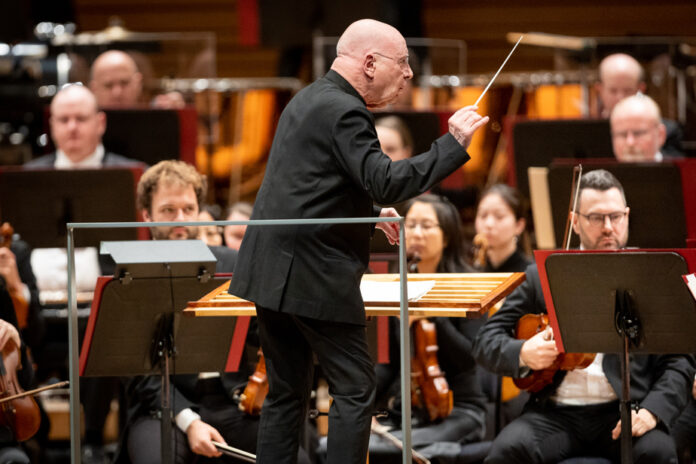Veteran Christoph Eschenbach was back at the helm of the Montreal Symphony Orchestra on Wednesday evening for the first time in five years, alongside German violinist Augustin Hadelich. A relatively demanding program with sometimes too careful execution.
Who had the idea of programming the Three Pieces for Orchestra, Op. 6, AND Berg’s Concerto in Memory of an Angel in the same concert, what’s more in the first part? Not that the works are without interest – they are certainly masterpieces – but their sequence (nearly 50 minutes of music) is like eating two extremely rich meals.
Why not replace the Three Pieces with a prelude by Wagner or an overture by Brahms or Schumann, to stay in the Germanic universe?
Nor can we say that this first Bergian part convinced us on the interpretative level. The Three Pieces were the subject of a very conscientious implementation on the part of the German conductor (which is not nothing, on the contrary), but we struggled to feel the extreme sensuality, the subtly decadent side inherent to this music. Berg is not that far from Mahler and Richard Strauss, after all.
The violin concerto sort of goes in the same direction. The very first theme in a sequence of fifths is done in such an inexpressive manner… Likewise, Berg may well write molto largo (“very broad”), then molto adagio at the end of the second part, the conductor and the soloist continue their journey almost as if nothing had happened.
As for Hadelich, we first say to ourselves that he is undoubtedly restrained by the too blunt support of his compatriot. Not that the sound and meaning of the song are not at their zenith. However, we understand who we are dealing with when we hear it in its encore, the adagio from Bach’s Solo Violin Sonata No. 3 in C major, BWV 1005, which had nothing of an adagio until have a “childish refrain” side, despite a remarkable sense of nuance (magnificent pianissimo reprise!).
The spectators who left after the intermission – a negligible number – missed the best part. Having primarily made a career as a pianist specializing in the Germanic repertoire, from Mozart to Brahms, Christoph Eschenbach is at home in Symphony No. 7 in A major, Op. 92, by Beethoven.
We are obviously far from “historically informed” interpretations, the conductor favoring a rather traditional approach to the use of vibrato and the choice of tempos. If we are treated to a very energetic finale, the scherzo and the initial vivace are rather calm, without being boring either.
Others may prefer the more tonic approach of a Paavo Järvi or a Giovanni Antonini, but Eschenbach’s well-invested Beethoven sings and shines throughout.















